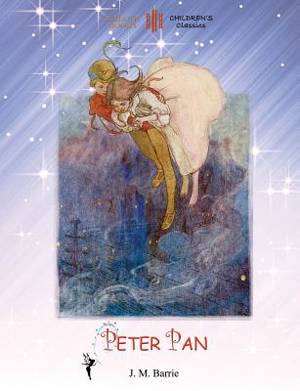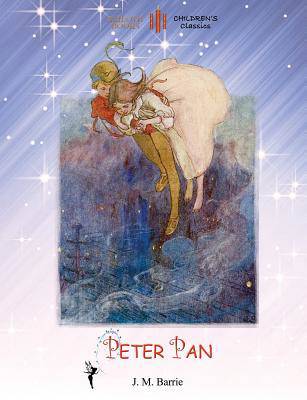
- Afhalen na 1 uur in een winkel met voorraad
- In januari gratis thuislevering in België
- Ruim aanbod met 7 miljoen producten
- Afhalen na 1 uur in een winkel met voorraad
- In januari gratis thuislevering in België
- Ruim aanbod met 7 miljoen producten
Omschrijving
'Peter Pan' began life as a stage play, first performed in 1904, at a time when children's literature was still in its infancy. It was another seven years before J. M. Barrie's masterpiece could be read in book form, and its publication caused a sensation. The novel is set in the Darling household, in stuffy Edwardian England, at a time when conformity was all and "children were to be seen and not heard". Wendy Darling holds her two younger brothers spellbound with bedtime stories of adventure and swordplay. Her tales seems to attract a strange, flying boy, who swoops into the bedroom at night, teaches the Darling children to fly, and persuades them to take wing with him to Neverland, an enchanted country of lush jungles and golden beaches, where children can play and romp free from all grown-up rules. But all is not well in Neverland: apart from their allies, the 'Lost Boys', the children must face wild animals, Indians, and pirates led by the sworn enemy of Peter Pan, the cruel Captain Hook, a man who fears nothing and no-one - except, perhaps, a clock-carrying crocodile. Complemented by twenty-seven of Alice Woodward's beautiful colour illustrations and numerous line drawings, 'Peter Pan' is a wild, fantasy adventure, full of magical people and places and shot through with all the quirky, funny little thoughts of childhood. But J. M. Barrie's tale is more than just a simple fairy tale. Barrie is keen to point out the value of family and that, despite the wonders of Neverland, it is not a place to stay in forever. The real world should be our playground.
Specificaties
Betrokkenen
- Auteur(s):
- Illustrator(s):
- Uitgeverij:
Inhoud
- Aantal bladzijden:
- 136
- Taal:
- Engels
Eigenschappen
- Productcode (EAN):
- 9781909735798
- Verschijningsdatum:
- 17/06/2015
- Uitvoering:
- Paperback
- Formaat:
- Trade paperback (VS)
- Afmetingen:
- 189 mm x 246 mm
- Gewicht:
- 340 g

Alleen bij Standaard Boekhandel
Beoordelingen
We publiceren alleen reviews die voldoen aan de voorwaarden voor reviews. Bekijk onze voorwaarden voor reviews.









